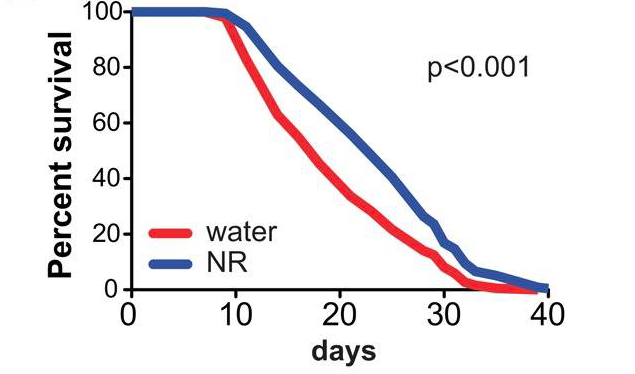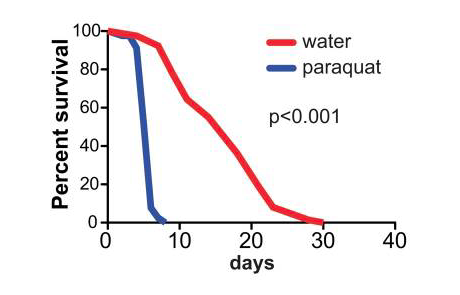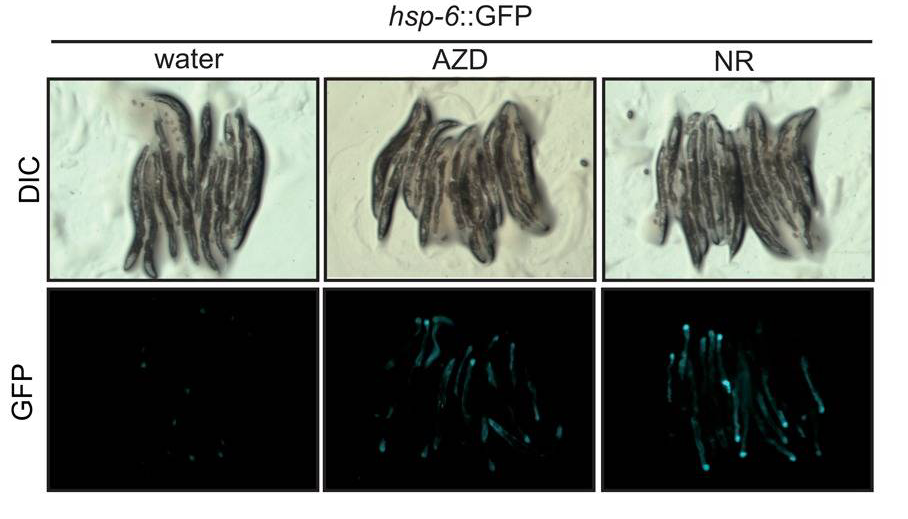NAD+ Activates Proteins and Cellular Pathways to Promote Longevity
Scientists showed increasing NAD+ levels promotes longevity and prevents age-related metabolic decline with improved cellular stress signaling in roundworms.
Nicotinamide adenine dinucleotide (NAD+) constitutes an essential molecule for cellular health involved in energy production in the powerhouse of cells, the mitochondria. At age 50, our cellular NAD+ levels are about half of what they were at 20.
Reduced NAD+ levels with age can adversely affect the functioning of the cell’s powerhouse, the mitochondria, resulting in dysfunctional metabolism. Research had not directly confronted the question of whether the resulting dysfunctional metabolism could affect lifespan in animals until a study published in Cell.
NAD+ Linked to Longevity
In the study, scientists from Switzerland investigated the link between NAD+ levels and mitochondrial health and longevity. The team of researchers found that augmenting NAD+ levels can improve mitochondrial functioning during aging and prevent age-associated physiological decline in roundworms. In simple words, depleting NAD+ reduced lifespan, and increasing NAD+ levels extended lifespan.

The team also found evidence for a cellular mechanism: raising NAD+ levels activates sirtuins, a protein that maintains mitochondrial health, and improves mitochondrial function. Sirtuins increase the mitochondrial unfolded protein response, a cellular process whereby mitochondria dispose of unfolded or abnormal proteins to promote mitochondrial health. Enhanced sirtuin function also induces the production of superoxide dismutase, a protein that protects cells against cellular stress from antioxidants.
To demonstrate the effects of altered NAD+ levels in longevity, the researchers found reducing NAD+ levels in roundworms significantly diminished their lifespans. The maximum lifespan of roundworms with normal NAD+ levels is around 25 days, but this number falls to less than 10 days with reduced NAD+. Conversely, increasing NAD+ levels significantly extended the average lifespan of roundworms. In genetically-altered roundworms with increased NAD+ levels, the average lifespan increased 20% to 29%.

The mitochondrial unfolded protein response increased upon treating roundworms with molecules that boost NAD+ levels, nicotinamide riboside (NR) and AZD2281. The enhanced response improves mitochondrial health and could help explain why increased NAD+ levels extend lifespan.

Treating roundworms with NAD+ boosters also increased the levels of superoxide dismutase, a key antioxidant protein in cells. Antioxidants protect cells from harmful molecules called free radicals that can damage cells. The correlation between increased NAD+ and higher antioxidant levels shows that NAD+ can improve mitochondrial health by raising levels of the protective antioxidant in parallel to activating the mitochondrial unfolded protein response. The protective effect on mitochondria provided by the two mechanisms may help explain why the treatment improved metabolic health and extended lifespan in roundworms.
“Altogether, the data in the worm assembled in this study validate a link between NAD+, sirtuins, [mitochondrial unfolded protein response], antioxidants, and lifespan control,” stated the scientists in their study.
Studies of rodents have since shown a similar effect in boosting NAD+ levels on longevity, indicating that NAD+ influences longevity not only in roundworms but in other species as well. Researchers still need to investigate whether NAD+ has this effect on humans. Current human clinical trials will help elucidate whether boosting NAD+ mitigates the effects of age-related disorders and brings longevity to humans.

